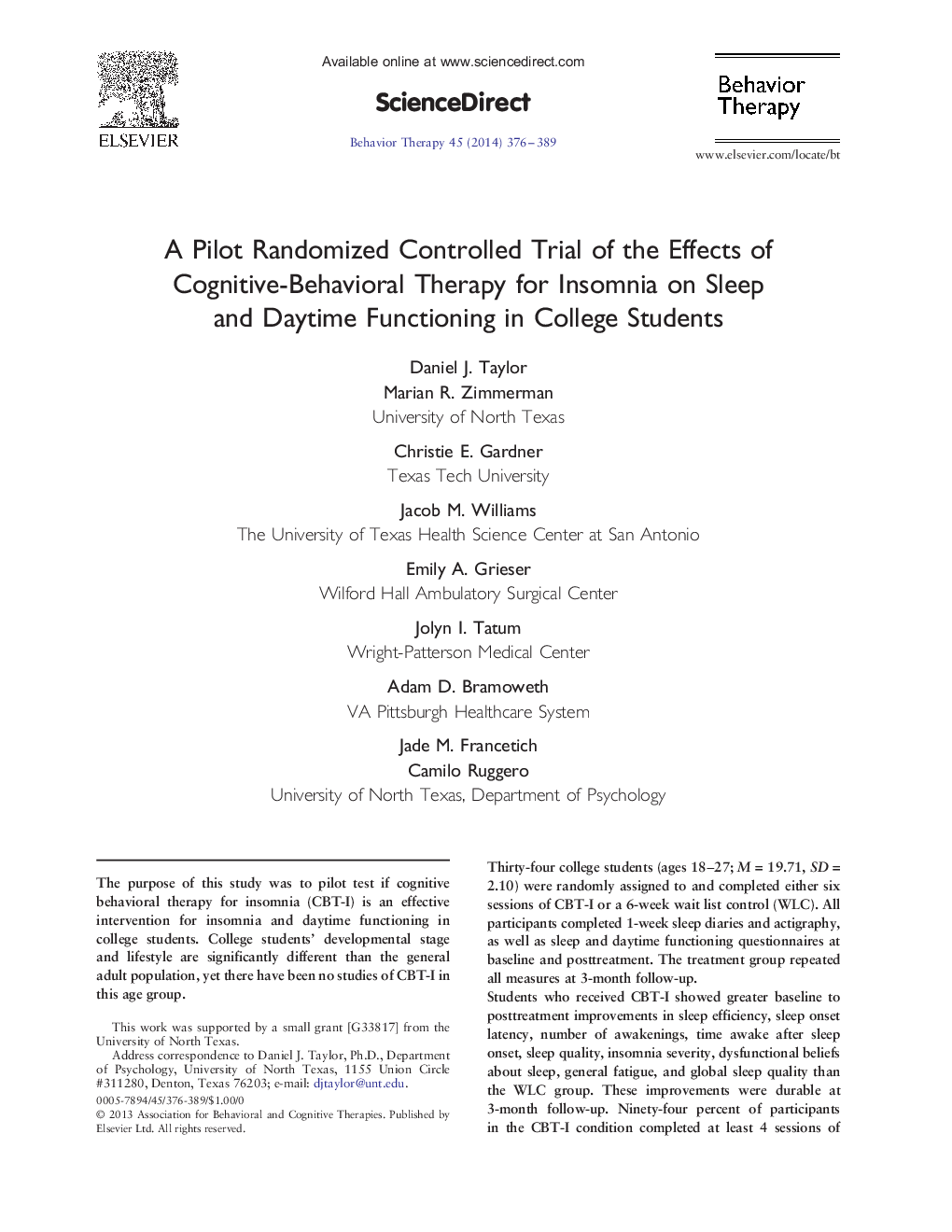| کد مقاله | کد نشریه | سال انتشار | مقاله انگلیسی | نسخه تمام متن |
|---|---|---|---|---|
| 901514 | 915872 | 2014 | 14 صفحه PDF | دانلود رایگان |
• Cognitive-behavioral therapy of insomnia (CBT-I) improved sleep in college students.
• Sleep results were similar to those seen in the general and older adult population.
• Most psychosocial functioning outcomes did not significantly improve.
• Medium effects sizes were found for some psychosocial outcomes.
• Psychosocial outcomes may have been dampened by a floor effect.
The purpose of this study was to pilot test if cognitive behavioral therapy for insomnia (CBT-I) is an effective intervention for insomnia and daytime functioning in college students. College students’ developmental stage and lifestyle are significantly different than the general adult population, yet there have been no studies of CBT-I in this age group.Thirty-four college students (ages 18–27; M = 19.71, SD = 2.10) were randomly assigned to and completed either six sessions of CBT-I or a 6-week wait list control (WLC). All participants completed 1-week sleep diaries and actigraphy, as well as sleep and daytime functioning questionnaires at baseline and posttreatment. The treatment group repeated all measures at 3-month follow-up.Students who received CBT-I showed greater baseline to posttreatment improvements in sleep efficiency, sleep onset latency, number of awakenings, time awake after sleep onset, sleep quality, insomnia severity, dysfunctional beliefs about sleep, general fatigue, and global sleep quality than the WLC group. These improvements were durable at 3-month follow-up. Ninety-four percent of participants in the CBT-I condition completed at least 4 sessions of treatment. Significantly more participants in the CBT-I group than the WLC group responded (68.8% vs 7.7%, respectively) and remitted (68.8% vs 15.4%, respectively).CBT-I is an effective treatment for insomnia in college students. This study found that treatment responses were similar to results from studies in the general population. The treatment appeared to be well tolerated based on very low attrition rates.
Journal: Behavior Therapy - Volume 45, Issue 3, May 2014, Pages 376–389
